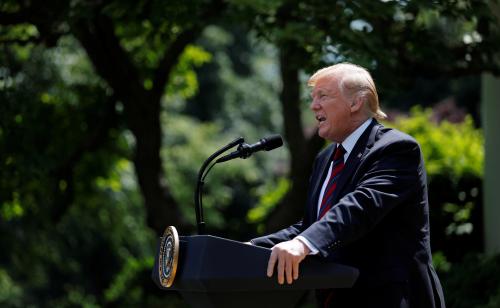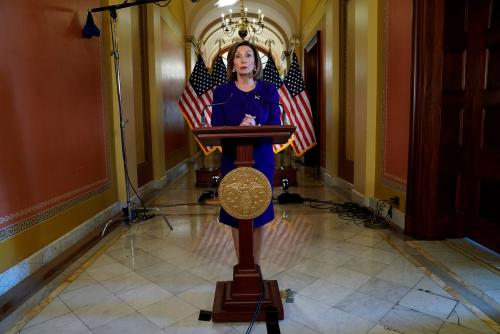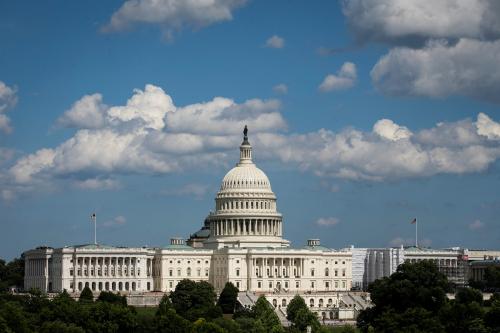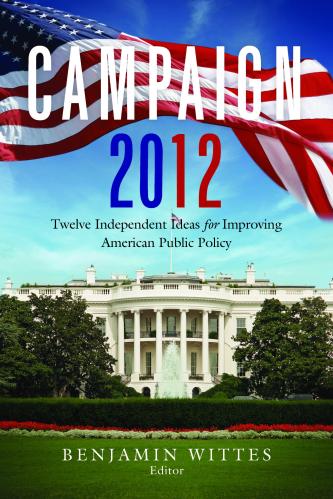“We don’t collect this information just to throw it out to the public,” said Attorney General William Barr in his much-anticipated press conference releasing the Mueller Report to the public and to Congress. And yet, that is exactly what is happening. Legal theories aside, when it comes to alleged bad behavior on the part of the president of the United States, the public is what matters. That’s because (for good reasons) it is difficult, if not impossible, to indict a sitting president. His removal is ultimately a political decision, and in democracies political decisions are ultimately about public attitudes.
So where is the public? Right now they are in their respective, highly polarized corners. A Reuters/Ipsos poll conducted March 25 and March 26 (after the Barr letter summarizing the Mueller findings) found that the Barr summation did not move the needle on public opinion. Forty-eight percent said they believed “Trump or someone from his campaign worked with Russia to influence the 2016 election.” This was down 6 points from the same question asked a week earlier, before the report was sent to the Attorney General. And 53 percent said “Trump tried to stop investigations into Russian influence on his administration,” down 2 points from the same question asked a week earlier. Responses to the questions fell predictably along party lines, with Democrats believing in the President’s guilt and Republicans believing in his innocence. Barr’s comments today will be greeted as complete vindication by the President’s supporters and as a whitewash by his opponents.
But what everyone, supporters and opponents alike, seem to agree on is that they want to make their own decision. The Quinnipiac poll conducted from March 21-25 found that 84 percent of the general public wanted the Mueller Report made available to the public. Democrats were the most insistent (93 percent saying they wanted the report available), followed by Independents at 86 percent. But even Republicans (at 75 percent) want to see the report. It also found a gender gap in the public’s reaction with women more likely to say the investigation was legitimate and men more likely to say it was a witch hunt.
The next question is, will anything in the full report move the public out of the corners to which they have become so firmly attached? It is only human nature to look for the dramatic turning points in history that signaled the downfall of someone previously thought to be untouchable. But often the downfall actually precedes the dramatic event.
For instance, the fall of Senator Joseph McCarthy (R-Wisc.) is often attributed to his behavior in the Army-McCarthy hearing which took place in June of 1954. But McCarthy’s star had already slipped. His 50-percent approval rating in January 1954 was down to 35 percent by May—one month before the dramatic hearing which history claims as his downfall.[1] By December of that year, McCarthy had been censured by his colleagues in the United States Senate and stripped of his ability to investigate. McCarthyism was over.
The downfall of President Richard Nixon is generally attributed to August 5, 1974, when the famous “smoking gun” tape was released showing Nixon agreeing to obstruction of justice. But the Watergate investigations had taken their toll much earlier, by the end of 1973. Nixon, who won a mammoth victory in the 1972 presidential elections, saw his approval ratings fall from 67 percent at the beginning of 1973 to 29 percent at the end of 1973. Throughout 1974 he never got out of the twenties and by the summer of 1974 he had resigned in disgrace.
As the politicians, the press, and the public pore over this report, will anything change the game for or against Donald Trump? He started out his term with equal numbers of Americans approving and disapproving of his job as president. But in May of 2017 when he fired the FBI Director James Comey, Trump’s approval ratings took a beating. One month later, on June 11, 2017, an average of polls in RealClearPolitics showed that more Americans disapproved of the job the president was doing than approved of him by a margin of 16 percent. In the nearly two years since then, those numbers have not changed in a fundamental way. Nearly three years into his presidency, Trump still governs a country in which a majority disapproves of him.
There may be something in the redacted report that changes public opinion, but as Trump’s former aid Steve Bannon once noted, the president’s firing of FBI Director James Comey may go down as the biggest mistake in “maybe in modern political history.”
The public moved into their respective corners early in Trump’s presidency—let’s see if anyone comes out in the weeks to come.
- [1] Polsby, Nelson W.(October 1962). “Towards an Explanation of McCarthyism”. Political Studies. 8 (3): 252. doi:1111/j.1467-9248.1960.tb01144.x.
The Brookings Institution is committed to quality, independence, and impact.
We are supported by a diverse array of funders. In line with our values and policies, each Brookings publication represents the sole views of its author(s).











Commentary
Sorry, Mr. Barr—it is up to the public now
April 18, 2019